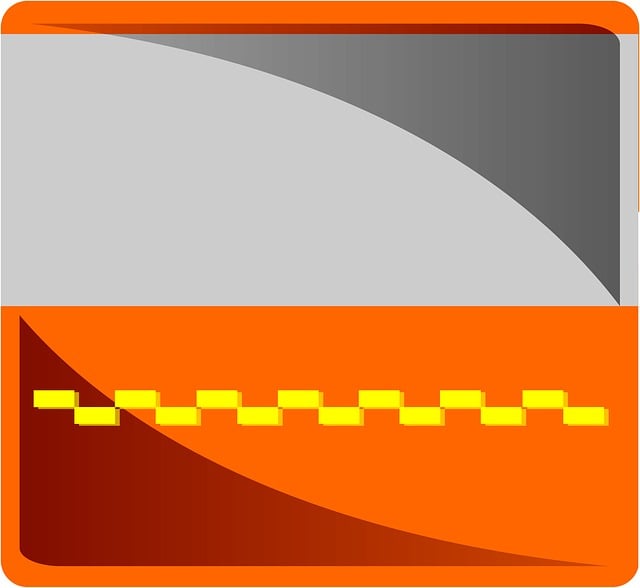When purchasing a used vehicle, conducting a VIN lookup to review its complete history is essential. This process reveals past accidents, ownership history, title brands indicating salvage or flood damage, liens, and safety recalls, all of which impact the car's reliability, resale value, and potential future problems. Buyers must verify vehicle records through official databases to ensure the title is clear and no financial obligations are attached to the vehicle. This due diligence protects your investment by uncovering hidden issues that could lead to costly repairs or legal complications. A thorough car history check, including a VIN lookup, is a non-negotiable step in the used car buying process to prevent any unexpected and negative consequences post-purchase. It ensures that you are fully informed about what you're buying, allowing for a more secure and financially sound decision.
When contemplating the purchase of a vehicle, the financial implications extend far beyond the sticker price. It’s not merely a transaction; it’s a significant investment that demands due diligence. This article delves into the pivotal role of Motor Vehicle History Validation—a step often overlooked yet critical in safeguarding your finances and peace of mind. Recent reports, such as ABC News’ coverage, underscore the increasing prevalence of vehicles with concealed issues entering the market. We will explore the necessity of leveraging VIN lookup and Vehicle Records Validation to mitigate potential pitfalls. Understanding the extent of these benefits, from uncovering past accidents to detecting outstanding loans, will empower you to make an informed decision. Don’t let the allure of a new car overshadow the importance of its history—ensure you conduct a thorough vehicle history check before finalizing your purchase.
- Understanding the Financial Stakes of Buying a Car
- The Dangers of Overlooking Vehicle History
- ABC News Report Highlights Rise in Cars with Incomplete Histories
- The Role of VIN Lookup and Vehicle Records Validation
- Uncovering Hidden Issues: What a VIN Check Reveals
- Protect Your Investment with Comprehensive Car History Checks
Understanding the Financial Stakes of Buying a Car

When one stands at the crossroads of purchasing a vehicle, the financial implications are profound and far-reaching. The decision to buy a car involves not just the immediate cost of the purchase but also the long-term financial commitment that comes with owning and maintaining the vehicle. The price tag on a new or used car is significant, often representing one of the largest single expenditures an individual will make after buying a home. However, the true cost extends beyond the sticker price. There are registration fees, taxes, insurance premiums, and routine maintenance costs to consider. Moreover, a car’s past can significantly impact its future reliability and value. A vehicle with a clean title and a history free of major accidents or flood damage typically retains its value better and requires fewer immediate repairs than one that does not have this documentation. For buyers, the importance of conducting a Motor Vehicle History Validation cannot be overstated; it is a critical due diligence step that protects their financial investment. By unearthing potential issues such as hidden damage, outstanding liens, or overlooked safety recalls, car buyers can make an informed decision and avoid the costly consequences of purchasing a problematic vehicle. The financial stakes are high, and the peace of mind afforded by a thorough VIN lookup and vehicle records validation is invaluable. It’s a step that every buyer should take to ensure their investment remains sound for years to come.
The Dangers of Overlooking Vehicle History

Overlooking vehicle history can lead to a myriad of unforeseen issues for car buyers. A vehicle’s past, encapsulated in its history report, can reveal critical information that significantly impacts its reliability and value. Undisclosed accidents or flood damages, for instance, can compromise the structural integrity and safety of the vehicle, potentially resulting in costly repairs down the line. Additionally, previous owners may have neglected necessary maintenance, leading to undetected mechanical problems that could arise unexpectedly.
Moreover, purchasing a car with outstanding liens or finances owed can result in the new owner being responsible for settling these debts before full ownership is legally transferred. Similarly, ignoring safety recalls hidden within the vehicle’s history can jeopardize the safety of its future occupants. These recalls are often issued to address potential defects that could lead to malfunctions or accidents. By bypassing a comprehensive VIN lookup and thorough vehicle records validation, buyers may inadvertently be stepping into a transaction fraught with financial and safety risks. It is imperative for prospective car owners to conduct due diligence and scrutinize the vehicle’s history to ensure they are making an informed decision that safeguards their investment and well-being.
ABC News Report Highlights Rise in Cars with Incomplete Histories

ABC News’ recent report sheds light on a concerning trend in the automotive market—a surge in vehicles being sold with incomplete histories. This development underscores the importance for potential car buyers to conduct a comprehensive Motor Vehicle History Validation. The report highlights that these incomplete history records can obscure significant issues, such as previous accidents, mileage discrepancies, or outstanding financial liens. Such oversights could lead to costly repairs, unexpected repossession, or safety risks down the line. The use of VIN (Vehicle Identification Number) lookup services and detailed vehicle records validation is more critical than ever before. These tools are instrumental in providing a transparent view of a car’s past, enabling buyers to make informed decisions and avoid potential pitfalls associated with purchasing a vehicle with a questionable history. Skipping this due diligence step could indeed turn what should be an exciting purchase into a financial burden fraught with complications.
The Role of VIN Lookup and Vehicle Records Validation

When purchasing a vehicle, understanding its full history is paramount for any prospective buyer. A VIN (Vehicle Identification Number) lookup serves as the cornerstone in this process, offering a comprehensive profile of the car’s past. This lookup provides critical information such as previous owners, accident history, title branding, and whether the vehicle has been salvaged or rebuilt. It acts as a historical record check that can reveal potential issues that might not be immediately apparent during a physical inspection.
Furthermore, validating vehicle records through authorized databases is an indispensable step in the car-buying process. These records verify the authenticity of the vehicle’s title and lien status, ensuring that there are no outstanding loans or financial obligations tied to the car. This validation can also ascertain that any reported accidents or damage have been properly repaired, and that safety recalls have been addressed. By doing so, buyers can avoid the pitfalls of purchasing a vehicle with hidden problems, which could lead to costly repairs or depreciation in value. The role of VIN lookup and vehicle records validation is not only to inform but also to protect the buyer’s investment, making these tools indispensable in the car-buying decision process.
Uncovering Hidden Issues: What a VIN Check Reveals

When contemplating the purchase of a used vehicle, a Vehicle Identification Number (VIN) check is an indispensable tool in the buyer’s arsenal. This critical step allows potential buyers to access a wealth of information about the car’s history, which is otherwise concealed from initial observation. A comprehensive VIN lookup can reveal past accidents, the extent of repairs made, title brands indicating salvage or flood-damaged vehicles, as well as any outstanding liens against the car. Such information is crucial for informed decision-making; it ensures that a buyer is not inadvertently saddled with a vehicle that may be costly to repair or resell. Furthermore, it is prudent to check for safety recalls related to the vehicle. Manufacturers issue recalls for defects that could pose safety risks, and these records are accessible through the National Highway Traffic Safety Administration (NHTSA). By conducting a VIN check, car buyers can safeguard their investment and avoid potential financial pitfalls associated with unforeseen vehicle issues. This due diligence is not merely an optional step; it is a responsible measure that can prevent post-purchase surprises and the subsequent financial strain they may entail.
Protect Your Investment with Comprehensive Car History Checks

When investing in a vehicle, conducting a comprehensive car history check is paramount to safeguard your financial well-being and ensure the safety and reliability of your purchase. A vehicle’s past can significantly influence its future performance and value; therefore, understanding the full history of the car through a detailed VIN (Vehicle Identification Number) lookup is essential. This process reveals critical information such as previous accidents, repair records, title history, and outstanding liens. Such insights are invaluable as they can indicate potential risks and costly future repairs that might otherwise remain hidden. By verifying the car’s history, buyers can make an informed decision, confident that their investment is not tainted by issues that could diminish its worth or compromise safety. Always invest the time and resources to perform a thorough vehicle records validation—it’s a step that could save you from the financial repercussions and headaches associated with purchasing a car with undisclosed problems.
When considering the purchase of a vehicle, the financial commitment is significant. The decision to invest in a car necessitates due diligence to protect one’s finances and safety. This week’s ABC News report underscores the increasing importance of conducting a Motor Vehicle History Validation before finalizing any transaction. By utilizing tools like VIN lookup and vehicle records validation, potential buyers can unveil critical information that may otherwise remain hidden, safeguarding their investment from potential pitfalls. The article’s exploration of the topic underscores the necessity of these checks in the car-buying process. In light of the insights provided, it is clear: a comprehensive vehicle history check is not just an option but a vital step for every car buyer to ensure they are making an informed decision and avoiding future financial regrets.



